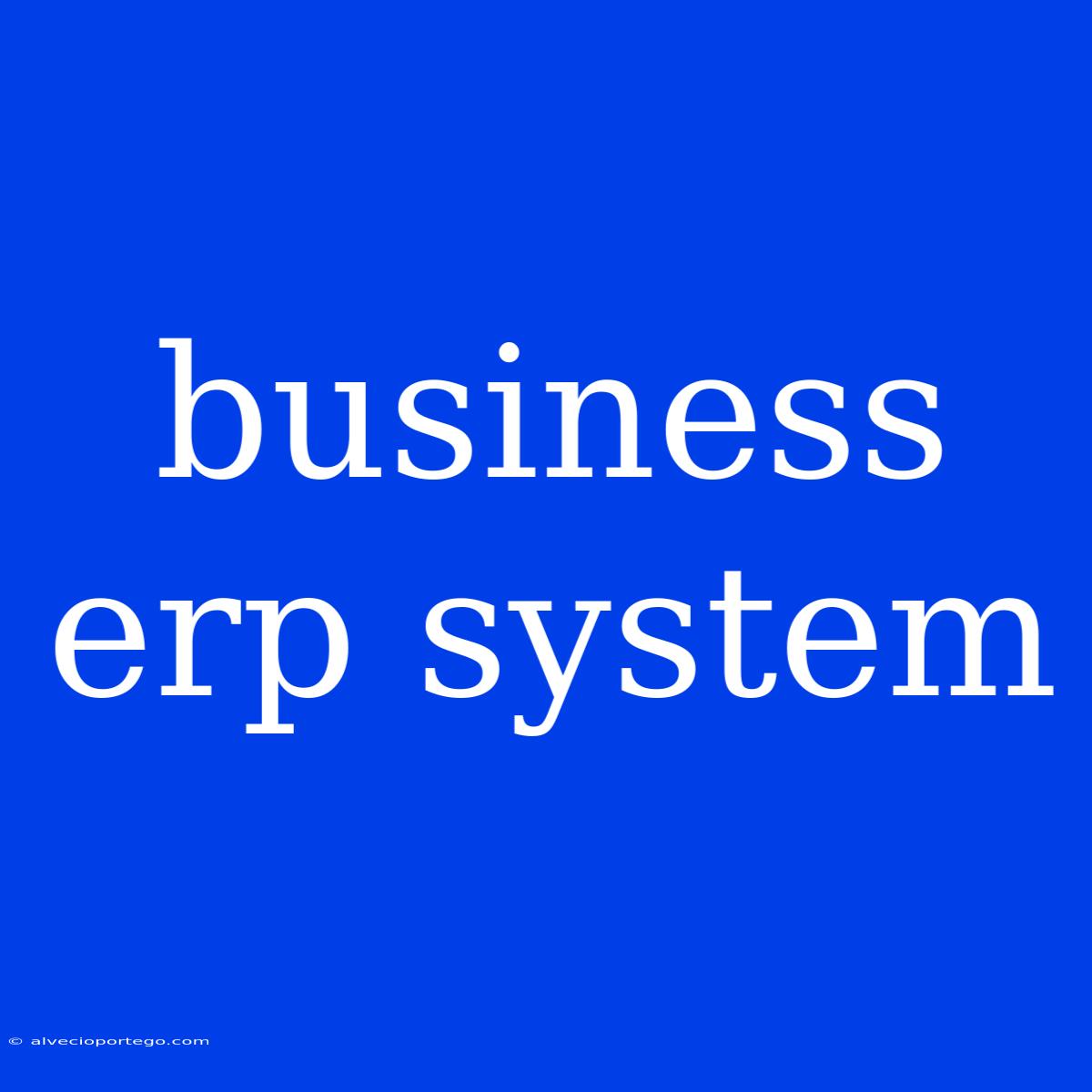What is a Business ERP System?
An Enterprise Resource Planning (ERP) system is a suite of integrated applications that helps businesses manage their day-to-day operations. It encompasses various departments and functions, from finance and accounting to human resources, supply chain management, and customer relationship management (CRM).
Think of it as a centralized hub where all your business information is stored and shared, providing a comprehensive view of your operations.
Why Use an ERP System?
Businesses use ERP systems for a variety of reasons, including:
1. Improved Efficiency and Productivity:
- Automation: Automating repetitive tasks, freeing up employees to focus on more strategic activities.
- Streamlined Processes: Integrating data and processes across departments, eliminating silos and redundancies.
- Real-time Data: Providing real-time insights into business performance, enabling faster decision-making.
2. Enhanced Visibility and Control:
- Centralized Data: Having a single source of truth for all business information, ensuring data accuracy and consistency.
- Real-time Reporting: Accessing key performance indicators (KPIs) and dashboards to monitor progress and identify areas for improvement.
- Improved Collaboration: Enabling seamless communication and collaboration between departments.
3. Reduced Costs and Increased Profitability:
- Optimizing Resources: Streamlining operations and reducing waste, leading to cost savings.
- Improved Inventory Management: Reducing storage and transportation costs by optimizing stock levels.
- Enhanced Customer Service: Providing better customer experiences through improved communication and service delivery.
4. Scalability and Growth:
- Adaptability: Adapting to changing business needs and supporting future growth.
- Flexibility: Integrating with existing systems and adding new modules as the business expands.
Key Components of an ERP System
A typical ERP system includes the following components:
- Financial Management: Accounting, budgeting, financial reporting, and treasury management.
- Human Resources: Payroll, benefits, talent management, and employee records.
- Supply Chain Management: Procurement, inventory control, warehouse management, and logistics.
- Customer Relationship Management (CRM): Sales, marketing, customer service, and support.
- Manufacturing: Production planning, quality control, and maintenance.
Choosing the Right ERP System
Selecting the right ERP system is crucial for successful implementation. Consider the following factors:
- Business Needs: Identify the specific challenges you need to address and the functionalities required.
- Industry-Specific Features: Look for solutions that cater to your industry's unique requirements.
- Budget: Determine the cost of the system, including implementation, training, and ongoing maintenance.
- Scalability and Flexibility: Ensure the system can adapt to your future growth and changes.
- Integration with Existing Systems: Consider compatibility with your existing software and databases.
In conclusion, an ERP system can be a valuable tool for businesses of all sizes. By streamlining operations, improving efficiency, and providing real-time insights, it can help businesses grow, increase profitability, and gain a competitive edge.

